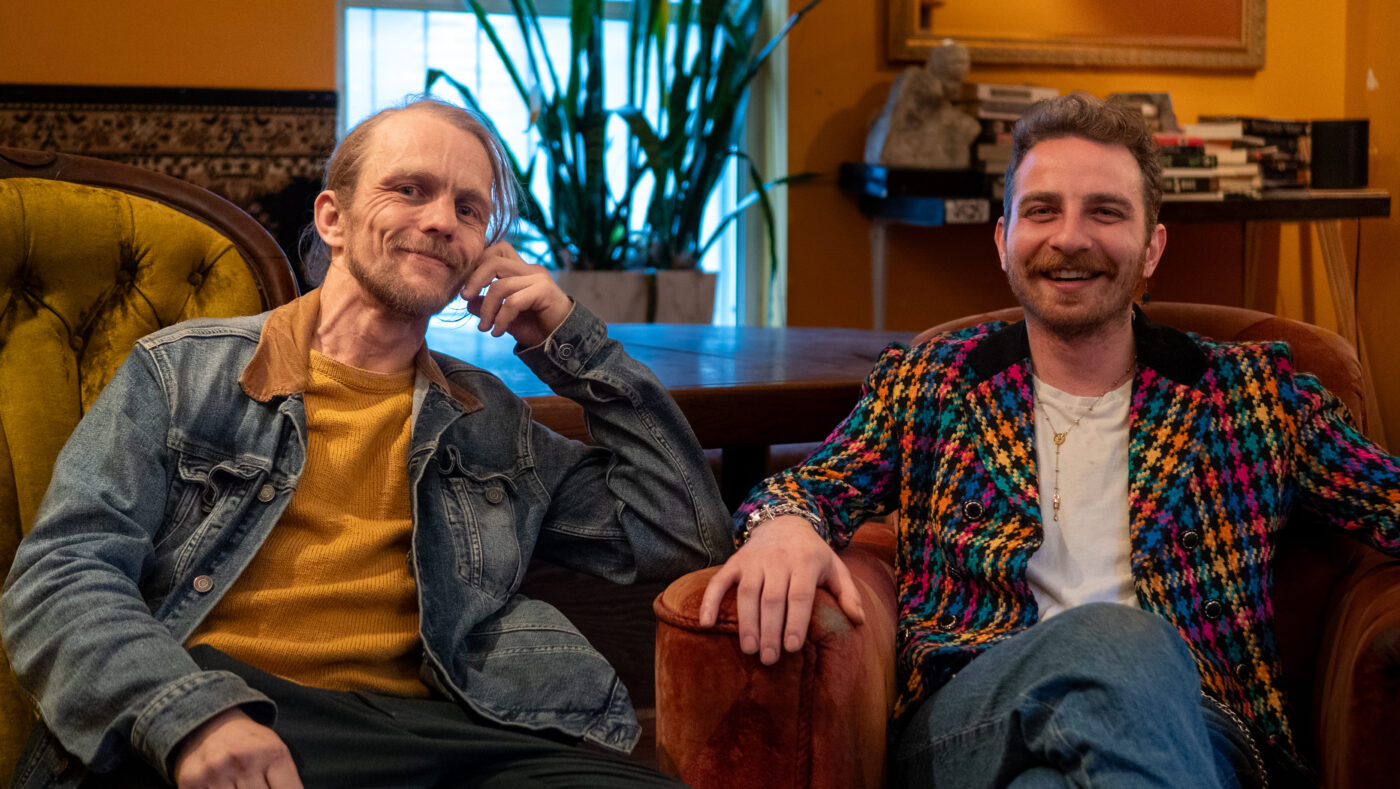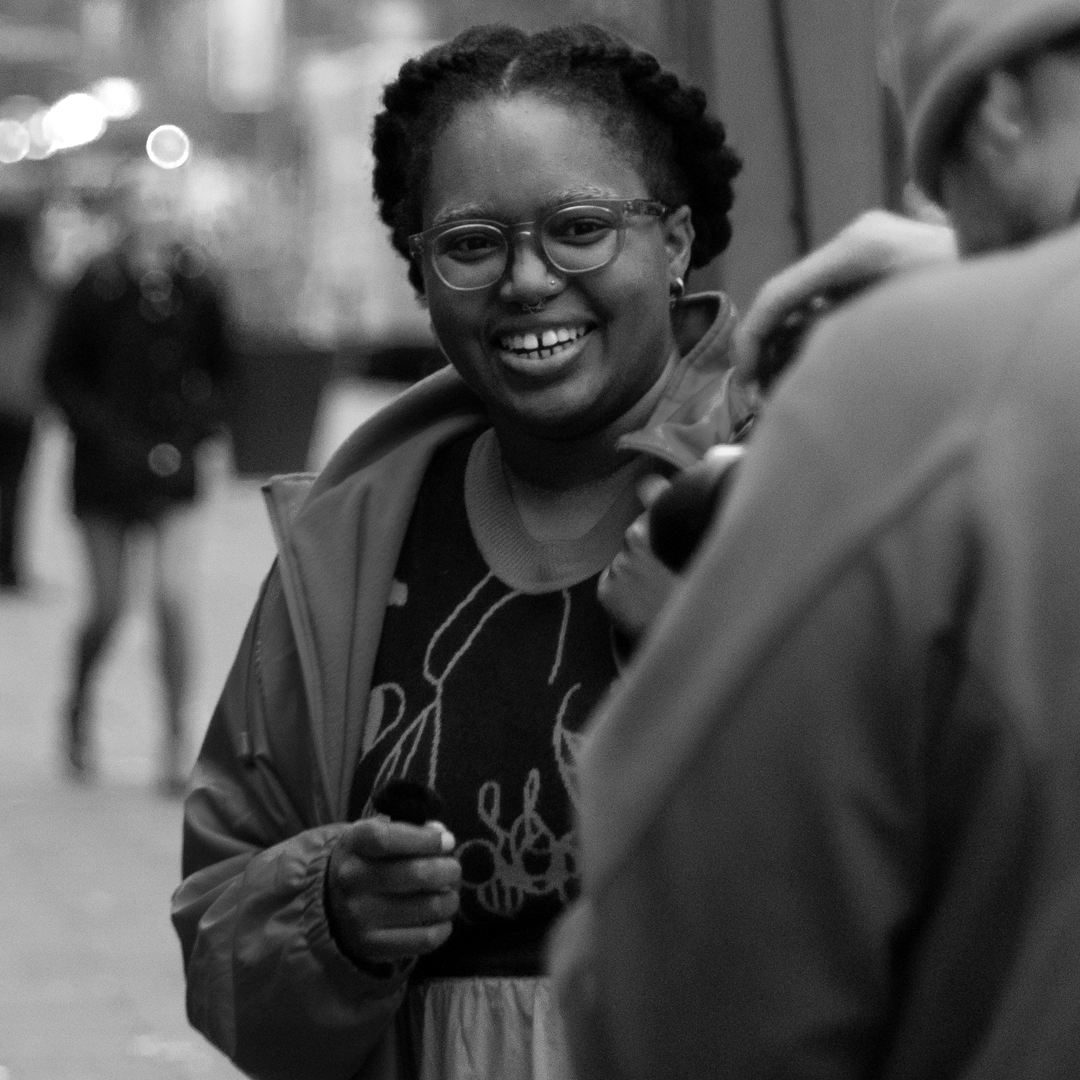How to create a third space that people actually like with Bampot House’s Alex Moore
THE GREEN LINE'S
CHANGEMAKER INTERVIEW
How to create a third space that people actually like with Bampot House's Alex Moore
For our May 2025 Changemaker newsletter, we spoke with Alex Moore, co-owner of Bampot House, a "public living room" in the University neighbourhood, about building community, hosting events and creating a third space.

Portrait of Bampot House co-owners Alex Moore (left) and D Taskiran (right).
📸: Anthony Lippa-Hardy/The Green Line.

Adele Lukusa
Graduate of Toronto Metropolitan University and Kitchener native living in Riverdale. Enamoured with all things arts and culture. Journalist and avid zinester who loves criticism, but loves iced tea more.
May 7, 2025
When Alex Moore first applied to work at Bampot House in 2014, they saw their resumé go to the trash in seconds.
That didn’t stop them. They re-applied and got the job, but quit two years later due to being overworked and underpaid.
After years of working in food and hospitality, Alex and their business partner D Taskiran took over Bampot House as co-owners and made it what it is today. The two built a community of creatives who frequently gather in the space. With the help of food and drinks connoisseur Abi, and media and marketing master Ali, the Bampot House team is able to host anything they put their minds to — all thanks to the community around them.
Whether it’s a tea party-themed drag show or a perfume-making workshop, there’s no limit to what’s possible at this burgeoning third space.
Bampot House has been around for a while and continues to bring such a warm, creative community. How did you and the rest of the team foster that energy?
|
Fact-Check Yourself
Sources and
further reading
Don't take our word for it —
check our sources for yourself.
Care about our city, but don't know how to make it better? Sign up for simple, step-by-step guides to solving problems in your neighbourhood — one small action at a time.
